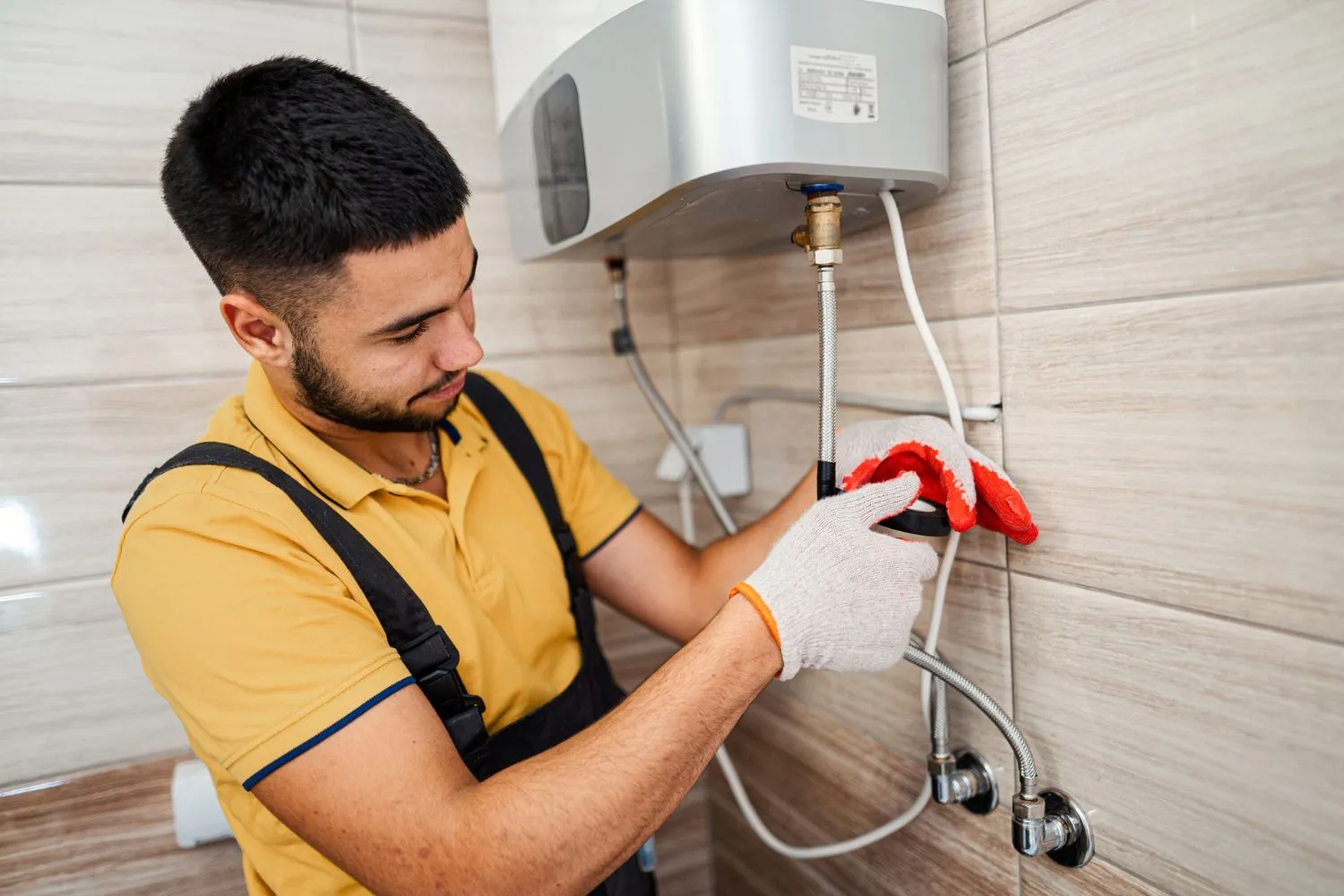Comprehending Water Heater's Challenges
Comprehending Water Heater's Challenges
Blog Article
We've stumbled upon this great article relating to Water Heater Repair and Troubleshooting directly below on the internet and figured it made good sense to relate it with you in this article.

Imagine starting your day without your routine warm shower. That currently establishes an inadequate tone for the remainder of your day.
Every house needs a trustworthy water heater, but only a few know just how to take care of one. One simple method to keep your hot water heater in leading shape is to check for mistakes on a regular basis as well as fix them as quickly as they appear.
Remember to switch off your water heater prior to sniffing about for mistakes. These are the water heater faults you are most likely to run into.
Water also hot or too cool
Every hot water heater has a thermostat that identifies just how warm the water gets. If the water coming into your home is too hot in spite of establishing a practical optimum temperature level, your thermostat could be defective.
On the other hand, too cold water may be due to a stopped working thermostat, a broken circuit, or incorrect gas circulation. For example, if you use a gas water heater with a damaged pilot light, you would get cold water, even if the thermostat is in ideal condition. For electric heaters, a blown fuse might be the wrongdoer.
Not enough warm water
Hot water heater been available in lots of sizes, depending on your warm water demands. If you run out of warm water before everyone has actually had a bath, your water heater is also small for your family size. You should take into consideration setting up a bigger water heater container or selecting a tankless water heater, which uses up much less area and also is much more sturdy.
Unusual sounds
There are at the very least 5 type of noises you can hear from a hot water heater, however the most usual analysis is that it's time for the water heater to retire.
First of all, you need to recognize with the normal appears a water heater makes. An electrical heating unit may appear different from a gas-powered one.
Standing out or banging sounds generally imply there is a piece of debris in your containers, and it's time to clean it out. On the other hand, whistling or hissing audios might merely be your shutoffs letting some stress off.
Water leaks
Leakages can come from pipes, water connections, valves, or in the worst-case scenario, the container itself. With time, water will rust the storage tank, and discover its escape. If this happens, you require to change your water heater asap.
However, before your adjustment your entire tank, be sure that all pipes remain in area and that each valve works completely. If you still require aid recognizing a leak, call your plumber.
Rust-colored water
Rust-colored water means one of your water heater elements is rusted. It could be the anode rod, or the storage tank itself. Your plumber will be able to determine which it is.
Lukewarm water
No matter how high you set the thermostat, you will not obtain any type of hot water out of a heating unit well past its prime. A water heater's efficiency might minimize with time.
You will also obtain warm water if your pipelines have a cross connection. This means that when you activate a tap, warm water from the heater moves in together with normal, cold water. A cross connection is very easy to spot. If your warm water faucets still follow closing the water heater shutoffs, you have a cross link.
Discoloured Water
Rust is a significant cause of filthy or discoloured water. Deterioration within the water container or a stopping working anode pole could create this discolouration. The anode rod shields the container from rusting on the within as well as should be examined yearly. Without a rod or a properly functioning anode rod, the hot water quickly rusts inside the container. Call a professional water heater technician to figure out if replacing the anode rod will certainly deal with the trouble; if not, replace your water heater.
Final thought
Ideally, your hot water heater can last ten years prior to you require an adjustment. Nonetheless, after the 10-year mark, you might experience any one of these faults much more on a regular basis. Now, you must add a new water heater to your spending plan.
How To Troubleshoot 3 Common Water Heater Problems in Twin Cities
The Water Heater Is Leaking
A leaky cold water inlet valve A loose pipe fitting A leaky temperature and pressure relief valve A corroded anode rod A cracked tank Turn Off Your Water Heater:
Shut off your gas water heater by turning the gas valve on the unit to the “OFF” position. Shut off your electric water by switching its power off at your electrical panel. Look for a two-pole breaker labeled “water heater” and turn it to the “OFF” position. Move the ball valve connected to the water heater to be perpendicular to the piping at a 90° angle. Look for the Leak:
Depending on whether the water is coming from the tank's top or bottom, you’ll want to look for the leak in different locations.
If the leak comes from the top of the tank, carefully look for water escaping from the cold water inlet valve or loose pipe fittings. Rusted hot and cold water valves can have loose connections with the tank, with water leaking out of them.
https://mspplumbingheatingair.com/blog/how-to-troubleshoot-3-common-water-heater-problems
As a passionate reader on Common Problems with Tank Water Heaters, I think sharing that piece of content was important. You should take the time to distribute this article if you enjoyed reading it. Thanks for going through it.
Act before it's late! Report this page